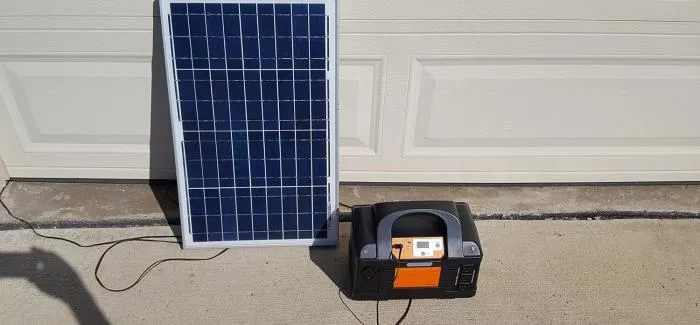Whole home generators are a crucial investment for homeowners who want to ensure their families have access to electricity during power outages. Whether due to severe storms, power grid failures, or other unforeseen events, these systems offer peace of mind, providing backup power to essential appliances. However, just like any major home appliance or system, whole home generators do not last indefinitely. Understanding the lifespan of a whole home generator and how to maximize its longevity can help homeowners make informed decisions about maintenance, repairs, and eventual replacement.
The Average Lifespan of a Whole Home Generator
On average, whole home generators last between 10 to 30 years. This broad range can be attributed to several factors, including the type of generator, the frequency of use, the quality of installation, and the regularity of maintenance.
Type of Generator: Whole home generators generally fall into two categories: standby (or permanent) generators and portable generators. Standby generators, which are permanently installed and connected to a home’s electrical system, typically last longer—around 20 to 30 years—due to their design, durability, and the fact they are powered by natural gas or propane, which are reliable and readily available fuel sources. In contrast, portable generators, which are often used on a temporary basis, tend to have shorter lifespans, generally around 10 to 15 years.
Fuel Source: The type of fuel your generator uses plays a significant role in its lifespan. Standby generators typically run on natural gas or propane, both of which are relatively clean fuels that don’t produce the wear and tear associated with gasoline. Gasoline-powered generators, on the other hand, are more prone to issues like carbon buildup and deterioration of internal parts, which can shorten their lifespan. Regular fueling, proper storage, and use of the right fuel type can contribute to better performance over time.
Usage Frequency: The more frequently a generator is used, the shorter its lifespan tends to be. Generators that run only occasionally, such as during power outages, will generally last longer than those used regularly for recreational or construction purposes. The wear and tear from frequent usage can accelerate the need for maintenance or repairs.
Maintenance Practices: One of the most important factors influencing the longevity of a whole home generator is how well it is maintained. Regular maintenance, including oil changes, air filter replacements, battery checks, and annual inspections, can significantly extend the life of the system. Most manufacturers recommend a comprehensive maintenance schedule that should be followed to ensure the generator runs smoothly and remains reliable when needed.
Signs Your Whole Home Generator Needs Attention
Even with proper care, a generator’s performance can decline over time. Homeowners should be aware of signs that indicate their generator may need repairs or replacement. Some of these signs include:
Frequent breakdowns: If your generator requires more frequent repairs or breaks down during use, it could be a sign of internal issues that are difficult or expensive to fix.
Strange noises: Unusual noises during operation, such as grinding or knocking sounds, could point to mechanical issues that require professional attention.
Starting problems: If the generator has trouble starting or takes longer than usual to power up, it could be a symptom of a failing battery, fuel system problem, or other electrical issues.
Reduced power output: A significant decrease in the amount of electricity the generator can supply may indicate that the system is deteriorating or that components like the alternator or voltage regulator are failing.
Maximizing the Lifespan of Your Whole Home Generator
While a generator will eventually wear out, regular maintenance and proper care can significantly extend its life. Here are some steps homeowners can take to maximize the lifespan of their whole home generator:
Follow Manufacturer Guidelines: Always adhere to the manufacturer’s recommended maintenance schedule. This includes performing routine oil changes, checking fuel levels, and replacing filters and spark plugs as needed.
Keep It Clean: Make sure the generator is free from dirt, debris, and moisture. Keeping the area around the generator clear of obstructions ensures proper ventilation and reduces the risk of overheating.
Test Regularly: Even if you don’t experience power outages frequently, it’s a good idea to run your generator for a short period each month. This helps ensure it remains in good working condition and prevents problems from developing due to lack of use.
Professional Inspection: Have a licensed professional inspect the generator annually. An expert can spot potential issues early and perform necessary repairs before they become serious problems.
Fuel Considerations: If your generator runs on gasoline, be sure to use fresh fuel and follow proper storage practices. Gasoline can degrade over time, so it’s important to avoid using old fuel when powering your generator.
Conclusion
Whole home generators are a long-term investment that can provide decades of reliable service, but their longevity depends on a variety of factors, from the type and quality of the generator to the frequency of use and how well it is maintained. On average, a whole home generator can last anywhere from 10 to 30 years, with standby generators typically outlasting portable models. By following maintenance schedules, keeping the generator clean, and having it professionally serviced regularly, homeowners can ensure their generator remains in top condition for years to come.
Investing in a high-quality generator and committing to routine upkeep not only maximizes its lifespan but also ensures that your home will have a reliable power source during unexpected outages.

